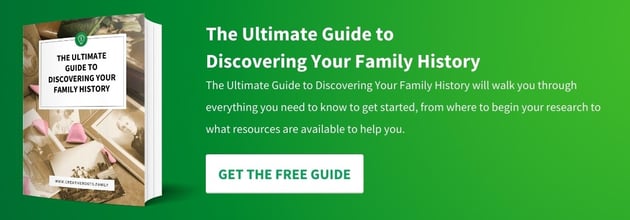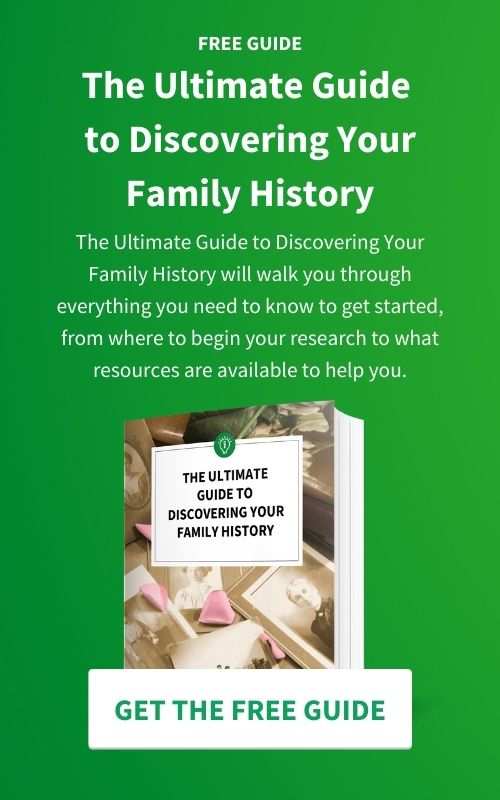10 Ways to Overcome Genealogy Research Blockades
Have you ever been working on your family tree and suddenly hit a wall? No matter how many different resources you consult, you just can't seem to find that one piece of information you need to move forward. If this sounds familiar, you may be experiencing a genealogy research blockade or brick wall.
There are a number of reasons why this can happen. Maybe you're stuck on a particular ancestor and can't seem to find any information about them. Or maybe you've hit a dead end in your research and don't know where to go from there.
Whatever the reason, a genealogy research blockade can be frustrating. But don't despair! There are a number of ways to overcome this obstacle. In this article, we will be discussing 10 ways to overcome genealogy research blockades.
1. Define Your Research Goals
When you're feeling stuck in your genealogy research, it can be helpful to take a step back and review your goals. Defining what you hope to achieve through your research can help narrow your focus and give you direction when you feel lost.
Start by asking yourself some questions: What do I want to learn about my ancestors? What time period am I interested in? What geographical area should I focus on? Once you have answers to these questions, you can begin setting specific goals for your research.
For example, if you're interested in learning more about your great-grandparents' lives, one goal could be to find their birth certificates. Or if You'd like to explore the immigration history of your family, another goal might be to track down passenger lists from the ships they arrived on. By breaking down Your objectives into smaller tasks, you'll make progress much easier —and a lot less daunting.
2. Identify Your Roadblocks.
There are many reasons why your genealogy research may have come to a standstill. Here are ten ways to overcome some of the most common roadblocks:
a) Not knowing where to start - If you're feeling overwhelmed by all the information out there, start with what you know. Write down everything you already know about your ancestors and work from there. Once you have a solid foundation, you can begin branching out and filling in gaps.
b) Lack of time - We all lead busy lives, but that doesn't mean we can't find time for our hobbies. Set aside an hour or two each week to focus on your research. You might be surprised at how much progress you can make in just a few hours!
c) Getting stuck in dead ends - When it feels like you've hit a wall, take a step back and look at the bigger picture. Sometimes going back one generation or expanding your search to include other relatives can help break through those brick walls.
3. Develop a Research Plan
When you're feeling stuck in your genealogy research, it can be helpful to develop a plan of attack. By breaking down your goals into smaller steps, you can make progress on even the most daunting projects.
a) Define Your Goal
What exactly are you hoping to accomplish with your research? Do you want to find out more about a specific ancestor? Or trace your family back to a particular country or region? Once you have a goal in mind, it will be easier to develop a plan to achieve it.
b) Start With What You Know
Even if what you know seems like very little, it's always worth starting with what information you have before moving on to new sources. Write down everything you know about ancestors, including dates, places, and any other relevant details-to help jumpstart your research..
c) Look For Clues In Documents
Once you've exhausted familiar resources like talking to relatives or looking through old photos, it's time to move on to tracking down official documents. Start with birth , marriage and death certificates, which can provide important clues about an individual's parents, spouses and children. If you hit a roadblock in finding these records online or at a local courthouse. Many clues can be found in old family documents such as letters, diaries, and other records can often provide new leads.
4. Access Online Records
There are a wealth of online resources available to genealogists these days. Here are ten ways to make the most of them:
a) Use search engines wisely – When searching for ancestors online, be as specific as possible in your queries. Include terms like “genealogy” or “family history” along with names and other relevant keywords.
b) Check out digitized records – An increasing number of government agencies and other organizations are making their records available online in digital format. This can save you a lot of time and effort compared to having to track down hard copies yourself.
5. Seek Out Experts
There are a number of ways to overcome genealogy research blockades. One way is to seek out experts. There are many experts in the field of genealogy who can help you with your research. You can find them by searching online or contacting your local Genealogical Society. They may be able to help you with specific questions or give you advice on how to proceed with your research.
6. Books, Websites and Databases
Another way to overcome genealogy research blockades is to use resources such as books, websites, and databases that specialize in genealogy. These resources can provide valuable information and lead you in the right direction when it comes to conducting your own research. Additionally, they can often offer tips and tricks for overcoming common obstacles faced during genealogical research endeavours.
Finally, don't forget about family members! Family members are often a wealth of information when it comes to learning about one's ancestry. If possible, reach out to elders within the family who might be able to talk at length about their own experiences growing up or remember stories passed down from previous generations.
7. Join a Genealogy Group or Society
These organizations can provide support, resources, and helpful advice. They often offer access to genealogy conferences or workshops. These events are great for networking and learning new research. Family Search holds an annual conference, Roots Tech, which is offered virtually. You may want to check it out. Also, consider visiting a family history center or archives.
8. Take a Trip to the Place Your Ancestors Lived
Seeing the places they lived and worked in can give you a whole new perspective on their lives. Visit the churchyard and see if you can photograph the headstones of possible relatives. If you cannot go physically, Google Earth has great tools to take a virtual tour of where your ancestors grew up. Sometimes your research can provide you access to old maps and you can compare what an area looked like then to how it is now.
9. Use Technology
There are many helpful genealogy software programs and online tools available. From family tree maker programs for records management to other tools like online mapping. There are many providers of online history or genealogy books, and catalogues like WorldCat.org. As many of us are descendants of immigrants, Google translate comes in handy for translating records.
10. Be Patient and Have Fun
Don't expect to find everything you're te looking for right away. Rome wasn't built in a day, and neither is a family tree! Remember, genealogy is supposed to be enjoyable. If you're not enjoying it, take a break and come back to it later.
Conclusion
If you're feeling stuck in your genealogy research, don't despair! There are plenty of ways to overcome research blockades. By following these tips, you'll be sure to overcome any research blockades you may encounter. So get out there and start exploring your family history!


Article by Carol Walsh
Carol Walsh is the CEO of Creative Roots, a professional genealogy company. She has a passion for preserving family history and storytelling. Carol's research methodology centers around fact-finding and publishing in a format that readers can use to preserve the stories. Her ultimate goal is to help families connect with their past and each other.





